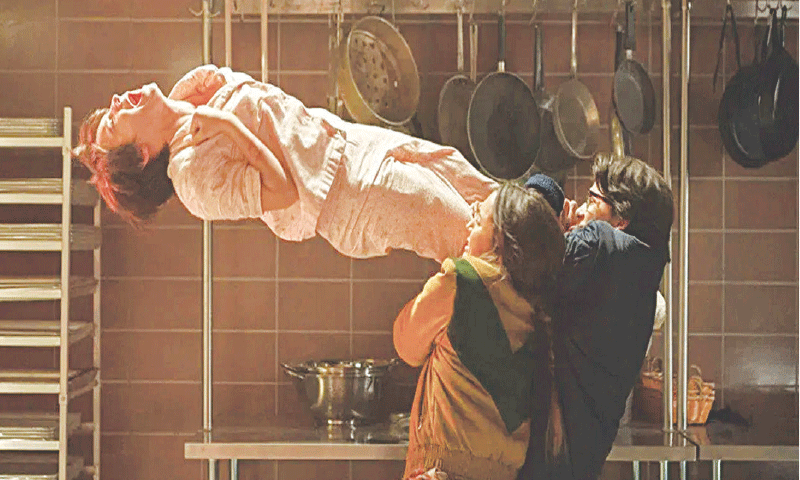
CINEMASCOPE : PHONE FIXATION
In Black Phone 2, “dead” continues to be just a word. It is 1982, four years since Finney Blake (Mason Thames) escaped The Grabber (Ethan Hawke) — but freedom hasn’t freed him, and the nightmare lingers. Once bullied, he’s now become a bully of sorts, throwing punches and knocking down new students who crack jokes about his kidnapping. The phones, however, haven’t stopped ringing; the calls come from the dead — children who once sought his help. Since Finney picks up the calls but declines to help, his sister Gwen (Madeleine McGraw), already attuned to the supernatural, begins receiving calls in her dreams. Along with them come visions: three boys stalked and killed at an abandoned Christian winter camp. With Ernesto (Miguel Mora), the brother to one of The Grabber’s victims from the last film, smitten with Gwen — and she with him (he invites her to a Duran Duran concert) — the trio head to the camp, where old stories and the dead return. Director Scott Derrickson (Sinister, Black Phone, Doctor Strange, The Gorge), co-writing with C. Robert Cargill (his regular collaborator), strikes a precise balance between the macabre, the ominous and the spiritual. Switching to film-burn transitions and 16mm stock for Gwen’s spectral sequences, or letting emotional conversations play out without music, Derrickson’s hand is unmistakable and obvious. One can’t help but appreciate how Black Phone 2 stands apart from formulaic horror. The returning cast — now older, but still scarred and scared — carry over a seamless emotional continuity from the first film. The supernatural works excellently, but the gore less so. A little restraint in the latter department might have served the film better. Still, it’s hard not to be mesmerised by the sheer originality Derrickson brings to the genre — especially when Gwen is flung across the kitchen and nearly into the furnace in the latter half of the film (no one predicted that would happen). Like all horror films, evil never really dies — or does it? By the climax, which answers that question, Derrickson leans into the kind of ending Stephen King adaptations love: a band of young survivors uniting against the supernatural. It lands with a twist. The feeling Black Phone 2 carries, however, comes with a different rhythm: one can’t help but cheer against the villain — who, spoiler alert!, had already died last time. This, by the way, leads to one of the film’s underlying questions: beliefs — or to be specific, Christian belief. The conversations at the tail-end take aim at those who merely utter and perform words without adhering to them. True faith, Derrickson’s characters suggest, is found in action. Gwen — foul-mouthed, fearless and furious — embodies that belief. She helps because she must, and not because she’s told to. Another character who shares her conviction, and deserved more screen time, is Mustang (Arianna Rivas), a young cowboy who assists Armando (Demián Bichir), the camp’s weary supervisor who’s been searching for the missing boys for years. By the end, Black Phone 2 finds a sense of closure though one suspects that, if Derrickson and Cargill return, their stories will remain just as effective, just as transfixing. Released by Universal Pictures and HKC, The Black Phone 2 is rated “A” for adult audiences, and has scenes of blood and gore that it probably didn’t need in the first place Published in Dawn, ICON, October 26th, 2025